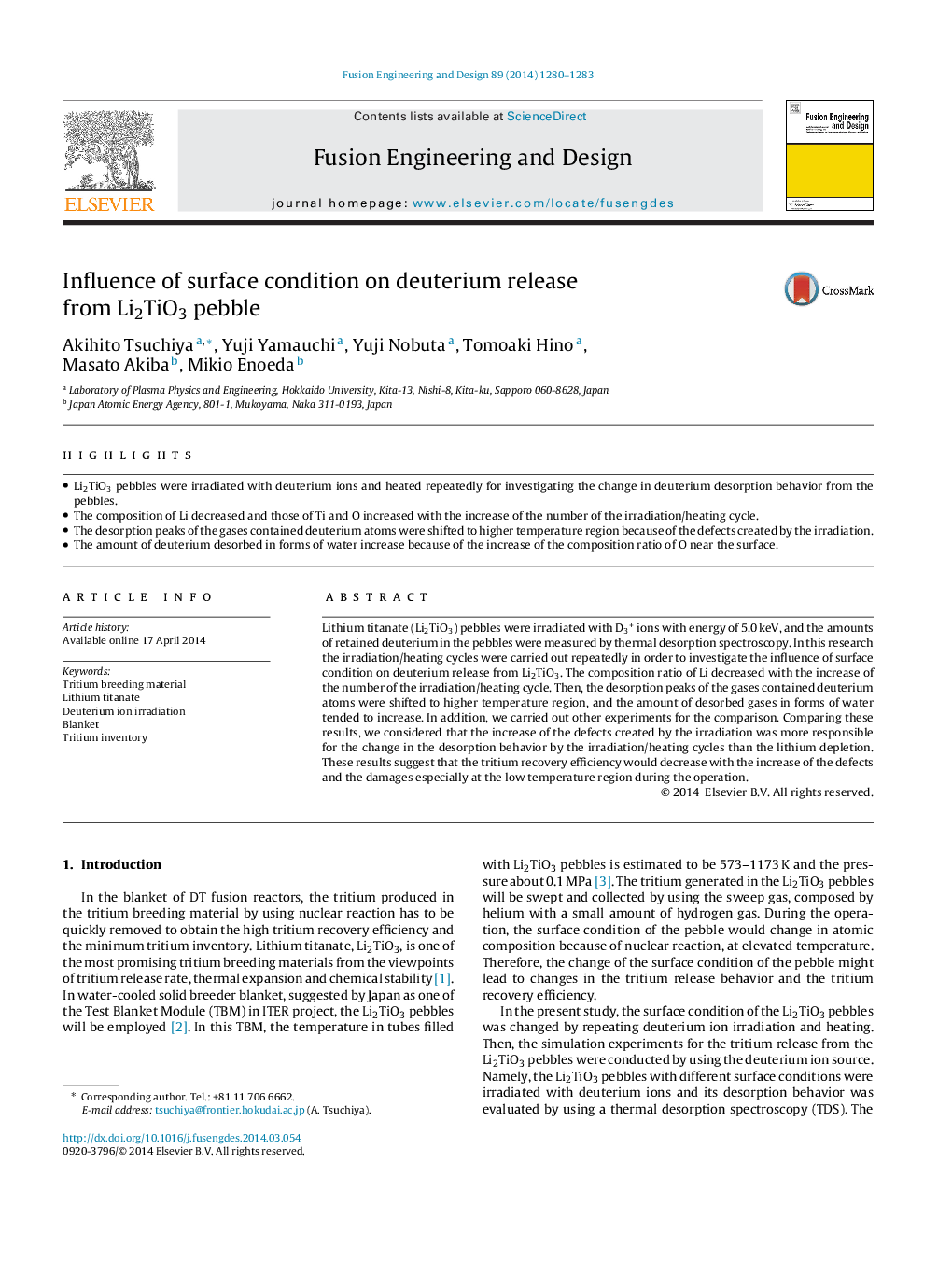| Article ID | Journal | Published Year | Pages | File Type |
|---|---|---|---|---|
| 271219 | Fusion Engineering and Design | 2014 | 4 Pages |
•Li2TiO3 pebbles were irradiated with deuterium ions and heated repeatedly for investigating the change in deuterium desorption behavior from the pebbles.•The composition of Li decreased and those of Ti and O increased with the increase of the number of the irradiation/heating cycle.•The desorption peaks of the gases contained deuterium atoms were shifted to higher temperature region because of the defects created by the irradiation.•The amount of deuterium desorbed in forms of water increase because of the increase of the composition ratio of O near the surface.
Lithium titanate (Li2TiO3) pebbles were irradiated with D3+ ions with energy of 5.0 keV, and the amounts of retained deuterium in the pebbles were measured by thermal desorption spectroscopy. In this research the irradiation/heating cycles were carried out repeatedly in order to investigate the influence of surface condition on deuterium release from Li2TiO3. The composition ratio of Li decreased with the increase of the number of the irradiation/heating cycle. Then, the desorption peaks of the gases contained deuterium atoms were shifted to higher temperature region, and the amount of desorbed gases in forms of water tended to increase. In addition, we carried out other experiments for the comparison. Comparing these results, we considered that the increase of the defects created by the irradiation was more responsible for the change in the desorption behavior by the irradiation/heating cycles than the lithium depletion. These results suggest that the tritium recovery efficiency would decrease with the increase of the defects and the damages especially at the low temperature region during the operation.
